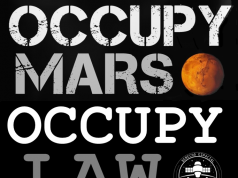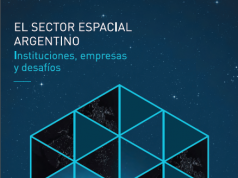By Juan Cruz González Allonca
What are the new challenges facing the space sector?
Some of the major challenges facing the global space community include enabling the cooperation of an increasing number of space actors, and facilitating the entrance of new space-faring nations and the private sector. Another relevant and current issue is the need for open access to data in the space sector. Access to data directly contributes to the distribution of opportunities, broadens economic gain, fosters research and innovation, and supports transparent decision-making processes. . There are also legal topics such as definition and delimitation of outer space, the use of nuclear power sources in outer space, legal mechanisms on space debris mitigation measures, and safety, security and sustainability.
Furthermore, space can only strengthen socio-economic development when we have a better understanding of the needs of end-users and society. That requires an integrated approach among the space sector and other sectors, such as environment and climate change, health, water, information and communication technology, and resource management, to name only a few.
Stronger partnerships and increased international cooperation, with new and innovative models, will be essential in the years to come.
On a broader scale, space-based data and its use permeate every aspect of everyone’s day-to-day life. In order to maximise the benefits of space-based science, technology applications, we must ensure that society can continue to access and enjoy the potential of space, and therefore raising awareness of how important the space sector truly is to everyone is of the utmost importance.
How is the UN working to guarantee the Long-term Sustainability of Outer Space Activities?
Long-term Sustainability of Outer Space Activities is an important concern of the United Nations and for Member States. For this reason, the Working Group on the Long-term Sustainability of Outer Space Activities was established under the Scientific and Technical Subcommittee of COPUOS to identify areas of concern for the long-term sustainability of outer space activities, propose measures that could enhance sustainability, and produce voluntary guidelines to reduce risks to the long-term sustainability of outer space activities.
The Working Group and its Expert Groups have addressed thematic areas including sustainable space utilization supporting sustainable development on Earth, space debris, space operations and tools to support collaborative space situational awareness; space weather; and regulatory regimes and guidance for actors in the space arena.
The Working Group on the Long-term Sustainability of Outer Space Activities of the Scientific and Technical Subcommittee agreed on a first set of guidelines in 2016, which was submitted to COPUOS for approval, and continues its work on a preamble and a second set of guidelines. These will be brought together with the first set to form a full compendium of guidelines, to be referred to the General Assembly in 2018.
Would you like to send a message to those men and women working in space law in Latin America?
Space law is a great field to be working in! I encourage you to foster cooperation in your field, and with other specialties, both within Latin America and globally. This is so important because space is the common domain of all humankind – no one person or country owns it. We need to all work together to preserve it for future generations.
What is your favourite space song? (Every week we post a space related song in Twitter under the hashtag #SpaceSong)
One of my favourite “space songs” is “Bellissime Stelle” (Italian for ”beautiful stars”) by Andrea Bocelli. He wrote this song for the Italian astronaut Paolo Nespoli to serve as a wake-up call when Nespoli was working on the ISS. Wake-up calls are a space-agency tradition where recordings are selected by mission control or family members of the astronaut to ensure the astronaut has a great start to the day. The song is a powerful reminder of the connection between people on the ISS and people on Earth, and how they both influence and strengthen each other.





